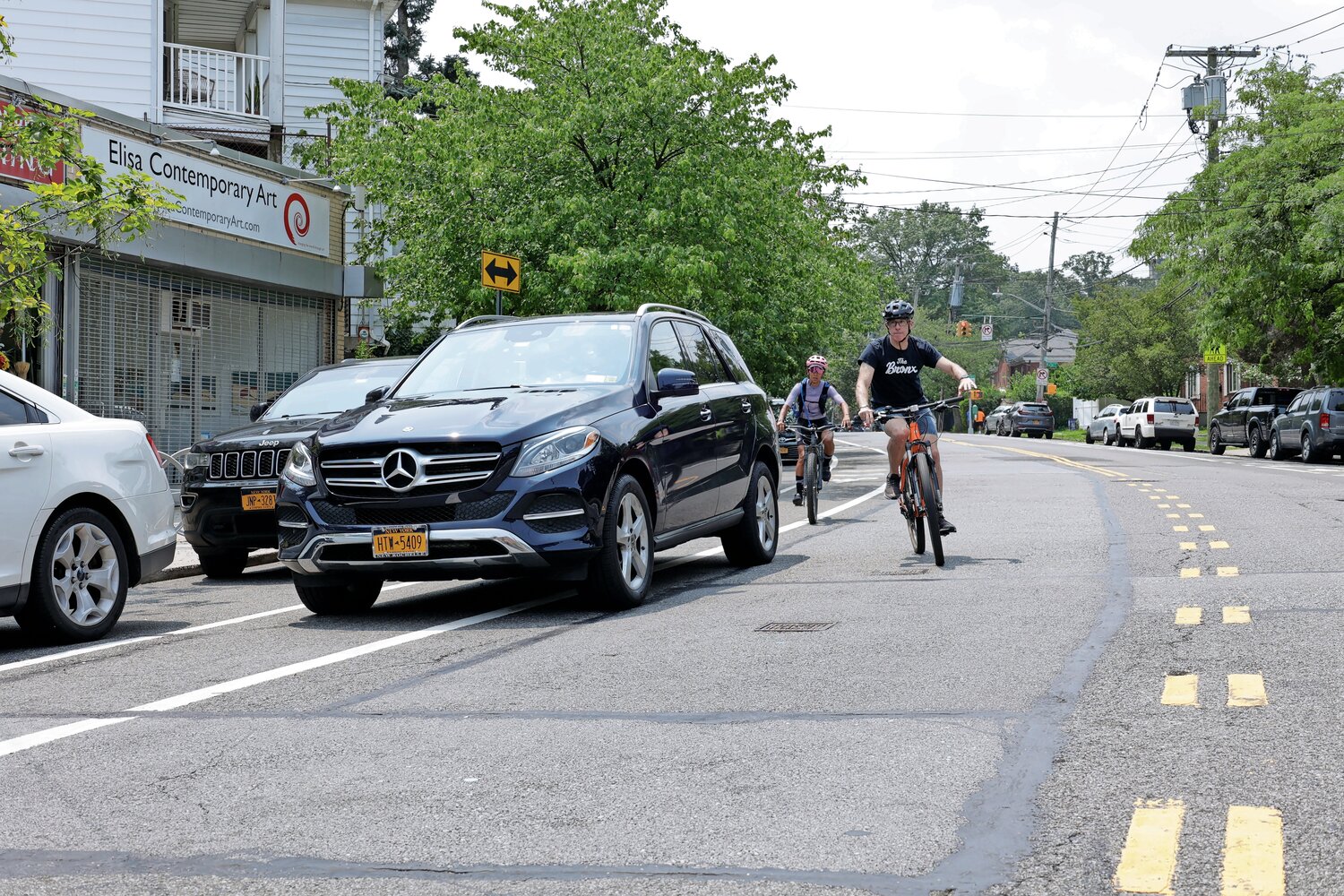Less parking, more housing in the City of Yes?
Mayor Eric Adams seeks approval for his City of Yes housing opportunity initiative. The proposed plan would change zoning laws all over the city and could alter a number of residents’ daily habits.
Community Board 8’s March 6 resolution created a committee tasked with overseeing all City of Yes reviews and recommending a final decision on approval to the board. The resolution acknowledged the plan for City of Yes would include removing citywide parking mandates for new buildings, but, so far, CB8 has not addressed any concerns related to such a change.
Part of the mayor’s plan to create more housing would change parking regulations for new residential buildings, removing decades-old regulations requiring builders to offer parking for their residents. Instead, the mayor is proposing new housing developments will not have to offer parking for the eventual residents.
Since 1961, city parking regulations call for all newly constructed residences to provide open or enclosed off-street parking spaces, and all residential additions to a building must meet established parking requirements.
The greater Riverdale community is no stranger to the challenges of finding street parking. And anytime cones go up or ground is broken for a new construction project or repairs, the community raises eyebrows about whether the city will obstruct or eliminate parking spaces.
In recent months, residents have raised concerns over the loss of parking spots and the potential increase of traffic at the site of the defunct Van Cortlandt Motel, as plans move forward to put a primary school where the motel now stands.
The mayor plans to increase the number of residents across the city while providing no extra parking for any of the cars new residents may bring with them. City officials have said they do not believe overall parking will be affected by Adams’ City of Yes changes.
The mayor’s proposal for eliminating parking mandates is based on the idea it would reduce construction costs, housing costs, and create more room for more housing.
In the information session hosted by the city planning department April 2, planner Winnie Shen said two parking spaces take up roughly the same amount of space as a studio apartment.
At the recent CB8 executive committee meeting, one member raised the statistic that 45 percent of residents within the board’s district consider themselves to be rent-burdened, which the city defines as anyone paying more than 30 percent of their income on housing.
Laura Spalter, member of the CB8 executive committee, said the board has been concerned for many years with maintenance and overall housing affordability.
Nicholas Stampar, an analyst from the city planning department, said, unfortunately, maintenance of local housing cannot be fixed overnight but affordability was being addressed by Mayor Adams’ initiative.
Other components to the City of Yes Housing Opportunity plan include allowing residences to be built up on top of existing ground-level commercial spaces. Building on top of these businesses would produce more affordable housing. The city projects these types of buildings could have two to four stories of housing built on.
The mayor also plans to re-legalize small or shared apartments. The idea behind smaller-sized apartments is to make room for single adults to live solo and affordably, while shared apartments have common kitchens or bathrooms among multiple units.
Another modification to zoning under City of Yes would allow single or two-family houses to add an additional dwelling, either outside in a backyard cottage, garage, or in the basement. The plan classifies these spaces as beneficial to recent graduates or the elderly.
City data shows the Bronx vacancy rate is currently less than 1 percent.
The idea for the mayor’s initiative is to “create a little more housing in every neighborhood,” Shen said.
According to city data, the current housing shortage has consequences including displacement and gentrification, segregation, homelessness, tenant harassment and poor quality housing.
The discussion on this initiative by the mayor has only just begun. City agencies will be attending CB8 meetings with presentations and proposals to give the community a better glimpse at what’s to come.
The resolution signed by CB8 established a special committee assigned to reviewing information and determining a recommendation on whether the board should support, in whole or in part, the mayor’s plan.
For Adams, the City of Yes initiative is meant to bolster the economy and bring more revenue and lower housing costs to the city.
Census data from 2021 indicates the average household in the Riverdale, Fieldston and Kingsbridge owns at least one car, and there are roughly 20,000 households, meaning 20,000 cars parked on and off-street at a given moment.
Planning officials said teams will assess all community board resolutions, adjustments will be made accordingly and then the revised plans will be reviewed.






